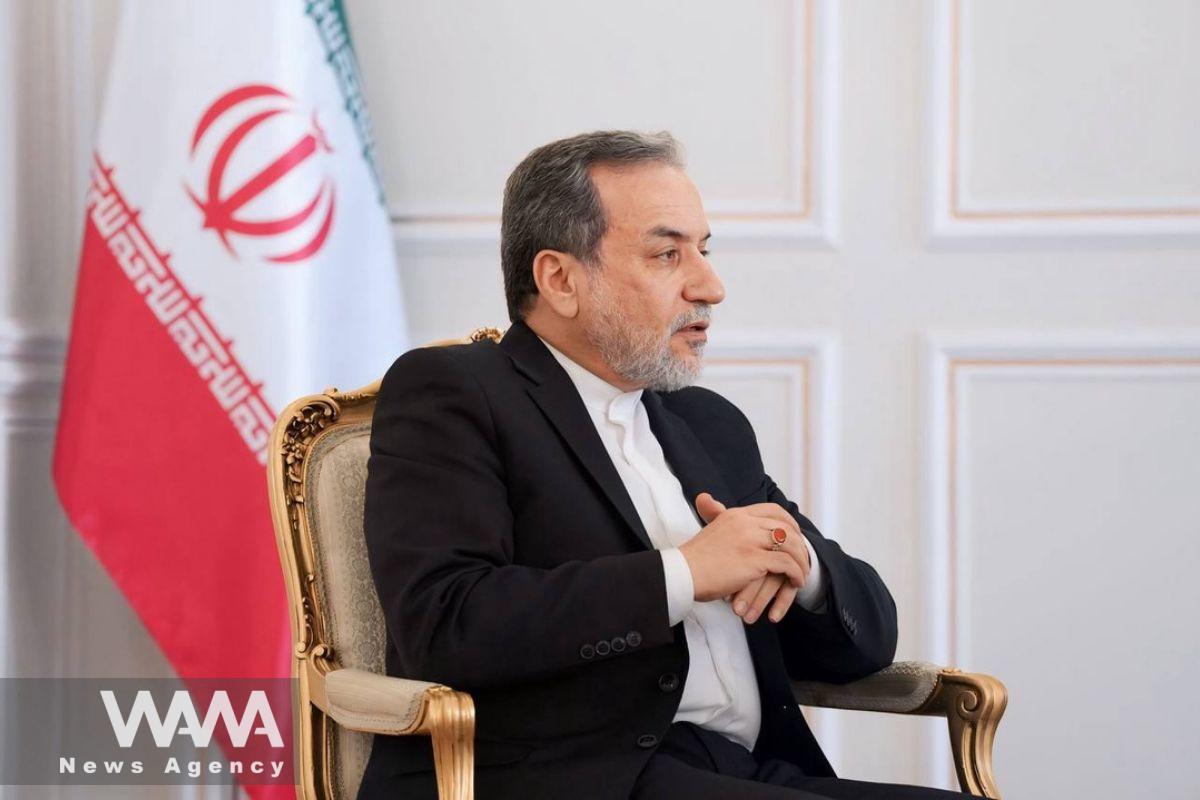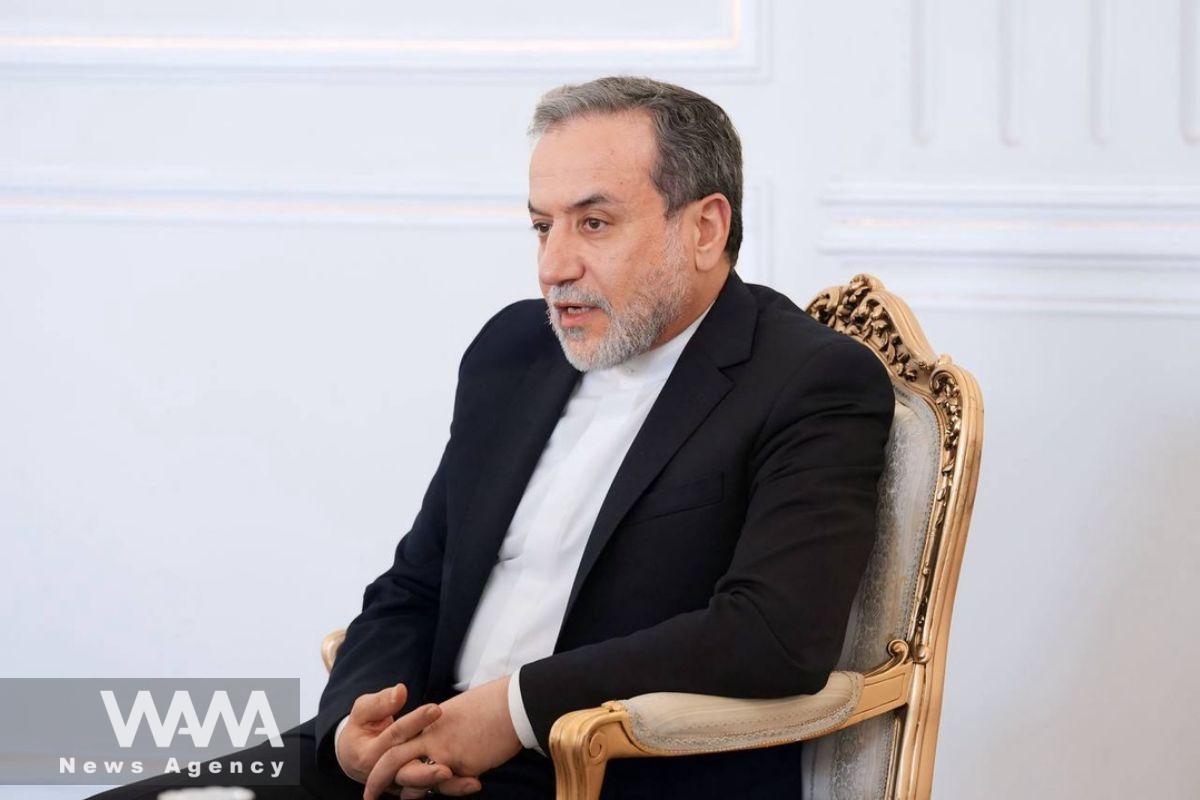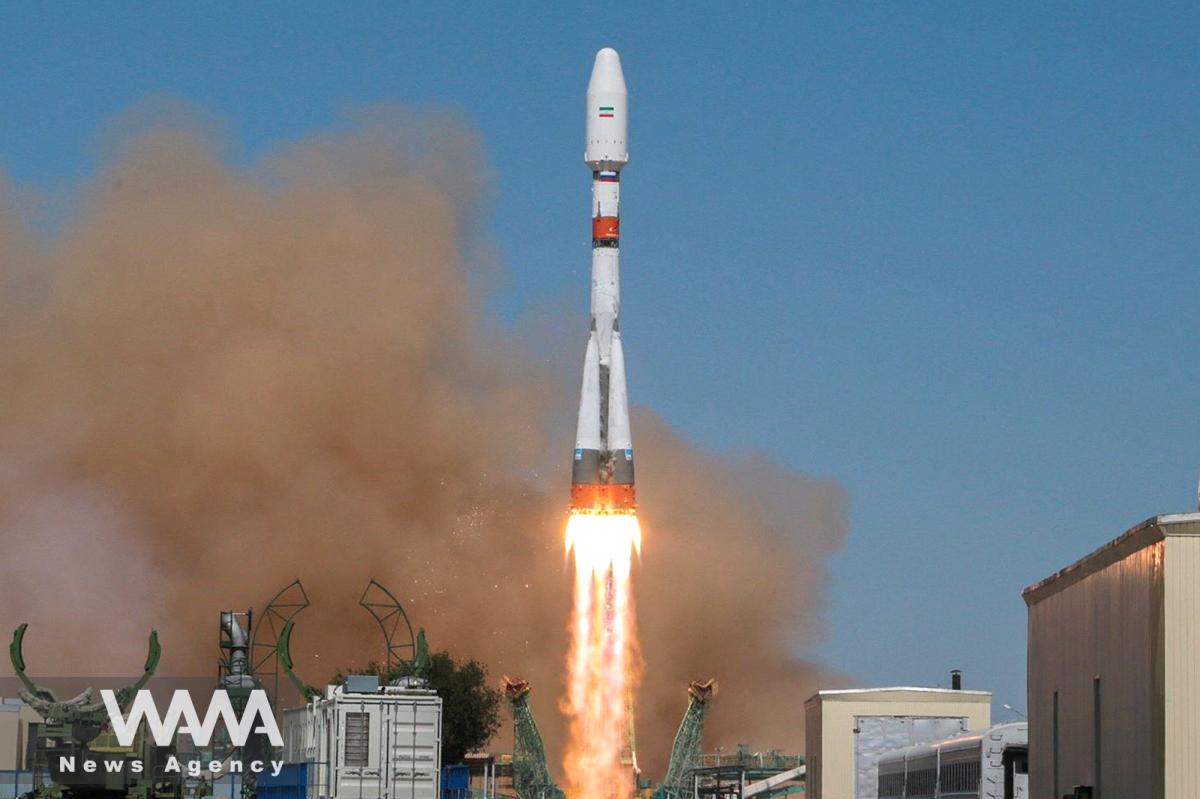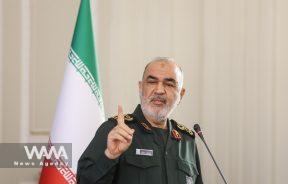Araghchi: Iran Seeks Peace in Region, U.S. Elections Do Not Influence Iran’s Policies
WANA (Nov 09) – In an interview with German media, Iran’s Foreign Minister Abbas Araghchi stated, “The possibility of the entire region being drawn into a full-scale war exists, but this is not something we seek; rather, it’s what Israel desires.”
Araghchi highlighted that over the past year, as Israel continued its attacks in Gaza, it repeatedly attempted to provoke Iran into a major conflict, but Iran acted with wisdom and restraint to prevent such an escalation. “However,” he added, “I agree that sometimes situations spiral out of control. If Israel continues its provocations, it will certainly receive an appropriate response.”
Warning to Israel on the Consequences of Escalating Tensions
The foreign minister held Israel responsible for stoking regional tensions, warning that Tel Aviv’s hostile actions would receive an appropriate response. He stressed Iran’s readiness to defend itself, affirming that while Iran does not seek war, it will respond to any aggression if necessary.
U.S. Elections Do Not Influence Iran’s Policies
The foreign minister affirmed that Tehran’s policies are independent of U.S. internal affairs and Iran is not seeking increased regional tensions. He noted that Iran’s national interests are paramount and that the U.S. elections have no impact on Iran’s strategy.

Iranians React to Trump’s victory , Reformists’ Gamble Lost
WANA (Nov 06) – In 2016, the morning after the U.S. election, Iran’s reformist media were elated over what they believed was a guaranteed victory for Hillary Clinton. They even displayed her photo beside Iran’s then-president, the reformist Hassan Rouhani. But the election ended with Donald Trump’s unexpected win. Today, with Trump’s re-election, history […]
On Jamshid Sharmahd’s Case and Germany’s Response
Araghchi also addressed the case of Jamshid Sharmahd, leader of the terrorist group Kingdom, emphasizing that Sharmahd was responsible for a deadly mosque bombing in Shiraz, which killed 14 people, including women and children, and injured over 200 others. Araghchi pointed out that Sharmahd had proudly claimed responsibility for these attacks in television interviews before his arrest.
He continued, “If German officials are defending Sharmahd’s German citizenship, they must accept that he is a terrorist German citizen.” Araghchi added that Sharmahd, considered an Iranian citizen in Iran, was fairly tried under Iranian law and sentenced to death.

Providing Information to German Authorities
Araghchi noted that relevant case information had been provided to German authorities, and Sharmahd’s family could formally request the transfer of his body. He confirmed that Iran has no objections to an autopsy if the family requests one, reiterating that there was no evidence of torture.
Criticism of Germany’s Political Response
Araghchi criticized Germany’s political reaction to the case, calling it “incomprehensible” and stating that Germany was supporting a “terrorist” who had admitted to his crimes. He condemned the double standards of Western nations in handling justice, questioning the arrogance of European and American behavior, and added that European nations should respect each other’s legal systems.
Regret Over Impact of Sharmahd Case on Iran-Germany Relations
Araghchi expressed regret over the strain on Iran-Germany relations due to the Sharmahd case, and he criticized Germany’s military support for Israel. He questioned the West’s double standards on human rights issues and the inconsistency in their approach to Iran.

Germany: Defender of an Iranian Terrorist, Supporter of Israel’s Child-Killing Policies
WANA (Nov 03) – Jamshid Sharmahd, an Iranian-German citizen and leader of the Thunder terrorist group, was executed in Iran a few days ago. One of the primary accusations against Sharmahd was orchestrating a terrorist attack on a mosque in Shiraz, Iran, which resulted in 14 deaths and over 200 injuries—a tragic incident recognized as […]
Araghchi: Germany’s Silence on Gaza Massacre and Loss of Credibility
Senior Iranian diplomat Araghchi criticized Germany’s silence on Israel’s recent killings in Gaza. He stated, “More than 50,000 people have been killed in Gaza by Israel, yet the German government has not issued a single statement condemning it, nor taken any practical steps such as imposing sanctions or closing Israeli diplomatic offices.” He called these actions “double standards,” adding that such policies damage Europe’s and Germany’s global credibility.
Araghchi Criticizes Germany’s Stance on Palestine
Araghchi, referring to Germany’s close relationship with Israel, remarked that “apparently, the massacre of people doesn’t concern Germany.” He emphasized that issues like the prolonged blockade and occupation of Palestine have driven people to take desperate actions. According to Araghchi, putting intense pressure on a population often leads to reactions that result in more conflict and violence.

Iran’s Stance on Supporting Liberation Movements
Araghchi stated that, unlike some Western governments, Iran does not label Hamas and Hezbollah as “proxies,” instead recognizing them as “liberation movements.” He clarified that Iran supports these groups solely for their commitment to humanitarian and justice-based causes.
Emphasis on Mutual Respect and Rejection of Demeaning Policies
Araghchi criticized Western nations’ approach to opposition groups, calling for mutual respect. He said, “The West should not consider itself the symbol of human rights while belittling others.” He urged Germany and Europe to abandon double standards and respect the rights of all nations instead of offering unconditional support to Israel.
Denial of Claims Regarding Ballistic Missile Sales to Russia
Araghchi emphasized that Iran has not sold ballistic missiles to Russia, a fact confirmed by the Ukrainian president. He added that Iran has always supported Ukraine’s territorial integrity but warned Europe against turning Ukraine into a battlefield.

Zelensky: Iran Has Not Provided Missiles to Russia
WANA (Nov 04) – Ukrainian President Volodymyr Zelensky did not confirm Western media reports alleging that Iran has supplied ballistic missiles to Russia, though he claimed that discussions between the two countries on the matter are ongoing and remain a concern for Ukraine. Zelensky stated that while Iran has not yet provided missiles to […]
Criticism of Germany’s Shift in Stance Following Iran’s Revolution
Araghchi recalled that after the Iranian Revolution, Germany ceased its collaboration on the Bushehr nuclear plant project, forcing Iran to partner with Russia to complete it. He described Germany’s decision as a historic mistake and advised against repeating similar errors.
Araghchi’s Message to Germany: Don’t Choose the Path of Confrontation
Araghchi referenced his recent meeting with German Foreign Minister Annalena Baerbock, expressing disappointment over Germany’s shifting stance. “I proposed a path of cooperation, but it appears that Germany has chosen the path of confrontation,” he remarked.
Iran Showed Goodwill in Nuclear Negotiations; Europe Did Not Fulfill Its Commitments
Iran’s foreign minister highlighted Iran’s goodwill during nuclear talks with European nations, the U.S., Russia, and China. He stated that Iran honored its commitments in full, yet the U.S. abruptly withdrew from the agreement, reimposing sanctions that harmed Iran. Despite European promises to compensate, he noted, no action was taken, and Iran was ultimately compelled to gradually reduce its nuclear commitments.

Araghchi: No Terrorist Will Find Impunity in Iran, Even with German Support
WANA (Oct 29) – Following summoning Iran’s chargé d’affaires in Berlin and strong objection to the Iranian government regarding execution of Jamshid Sharmahd an Iranian-German dual national, leader of the “Thunder” terrorist group by Germany, Seyed Abbas Araghchi, Iran’s FM in a post on his official social media account on X, stated: “A German passport […]
Commitment to Cooperation and Stability in the Persian Gulf
The foreign minister highlighted Iran’s commitment to good-neighborly policies with Saudi Arabia and other regional countries, aiming for peaceful relations. He acknowledged signs of goodwill from Saudi Arabia, expressing hope for continued de-escalation and increased cooperation toward regional stability.
Invitation to Dialogue and Criticism of Sanctions’ Ineffectiveness
Concluding his interview, Iran’s foreign minister invited European countries to engage in dialogue instead of resorting to sanctions, emphasizing that sanctions have never resolved issues. He noted that Iran has achieved self-reliance under the pressure of sanctions and has used this experience to further its progress.












